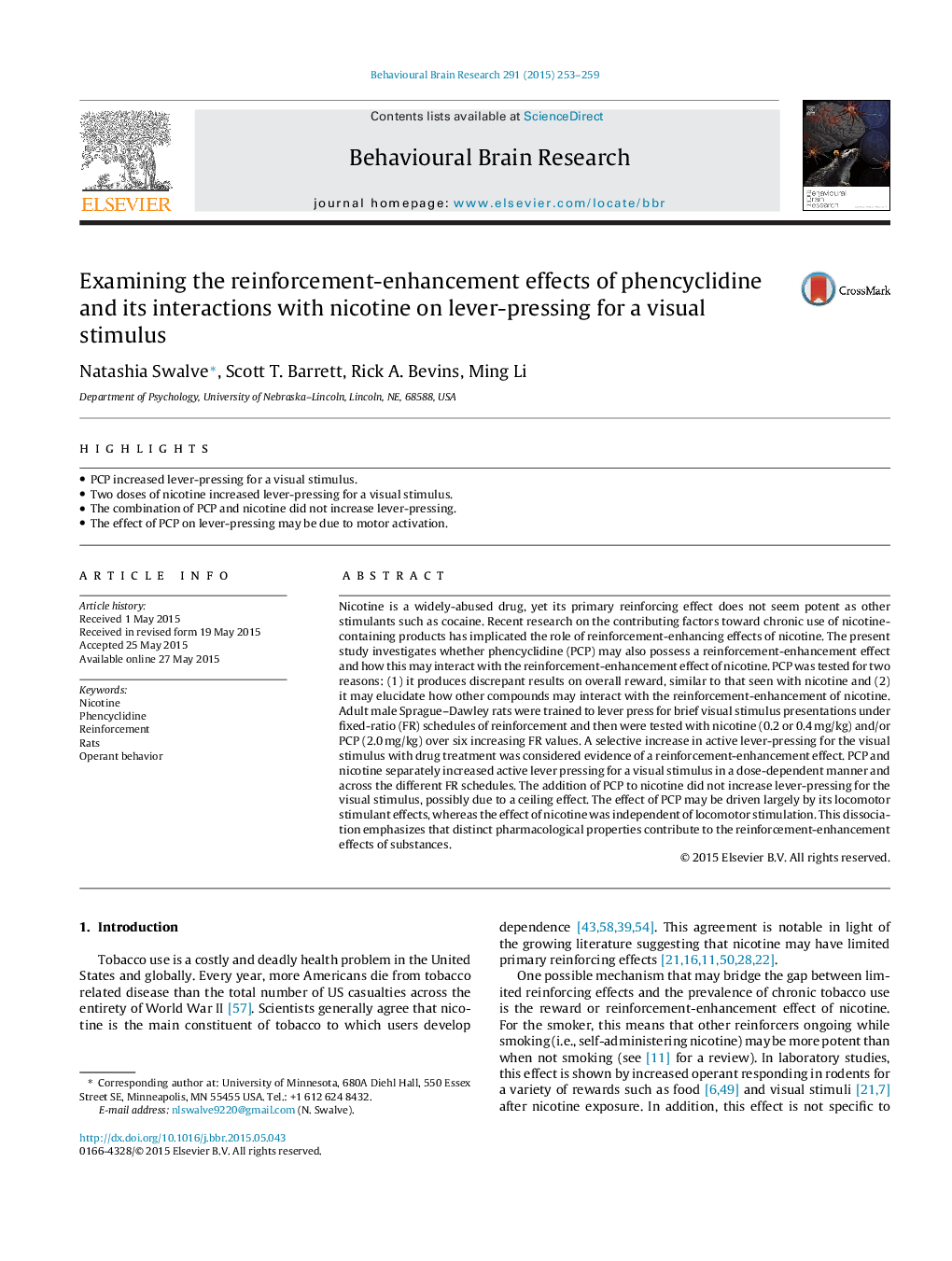| کد مقاله | کد نشریه | سال انتشار | مقاله انگلیسی | نسخه تمام متن |
|---|---|---|---|---|
| 4312395 | 1612941 | 2015 | 7 صفحه PDF | دانلود رایگان |
• PCP increased lever-pressing for a visual stimulus.
• Two doses of nicotine increased lever-pressing for a visual stimulus.
• The combination of PCP and nicotine did not increase lever-pressing.
• The effect of PCP on lever-pressing may be due to motor activation.
Nicotine is a widely-abused drug, yet its primary reinforcing effect does not seem potent as other stimulants such as cocaine. Recent research on the contributing factors toward chronic use of nicotine-containing products has implicated the role of reinforcement-enhancing effects of nicotine. The present study investigates whether phencyclidine (PCP) may also possess a reinforcement-enhancement effect and how this may interact with the reinforcement-enhancement effect of nicotine. PCP was tested for two reasons: (1) it produces discrepant results on overall reward, similar to that seen with nicotine and (2) it may elucidate how other compounds may interact with the reinforcement-enhancement of nicotine. Adult male Sprague–Dawley rats were trained to lever press for brief visual stimulus presentations under fixed-ratio (FR) schedules of reinforcement and then were tested with nicotine (0.2 or 0.4 mg/kg) and/or PCP (2.0 mg/kg) over six increasing FR values. A selective increase in active lever-pressing for the visual stimulus with drug treatment was considered evidence of a reinforcement-enhancement effect. PCP and nicotine separately increased active lever pressing for a visual stimulus in a dose-dependent manner and across the different FR schedules. The addition of PCP to nicotine did not increase lever-pressing for the visual stimulus, possibly due to a ceiling effect. The effect of PCP may be driven largely by its locomotor stimulant effects, whereas the effect of nicotine was independent of locomotor stimulation. This dissociation emphasizes that distinct pharmacological properties contribute to the reinforcement-enhancement effects of substances.
Journal: Behavioural Brain Research - Volume 291, 15 September 2015, Pages 253–259
